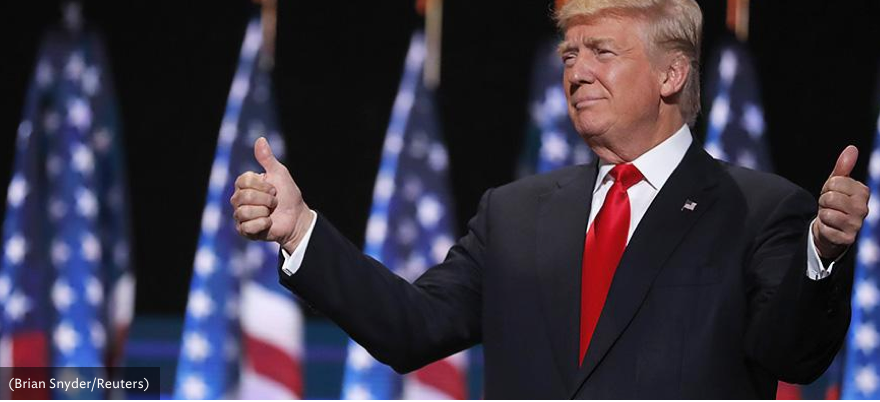The GOP nominee proposes himself as the sole solution to the nation’s ills. That’s the opposite of conservative.
In the battle over the role of government in American life, it’s clear that the Left is winning decisively. The era of small government is over. As Donald Trump’s convention speech made clear, the election of 2016 is a race between an old-school Democrat and a new-school progressive — between a post-war Teamsters’ boss and a university professor. Actual conservatism is nowhere in sight.
I can’t recall a Republican speech in my lifetime that put such an overwhelming emphasis on the ability of a national leader to transform American lives. I and I alone will protect Americans from ISIS, from domestic crime, and from the free market, Trump declared. Corporations won’t move their factories, wages will increase, and trade will suddenly become fair. How? Don’t ask. He’ll make it so.
Nor can I remember a modern Republican speech that put less emphasis on life, liberty, or the Constitution. He never mentioned abortion or Roe v. Wade. His discussion of religious liberty focused entirely around the Johnson Amendment — obscure legislation that has kept churches out of politics — and neglected the far more grave concerns about the independence and even existence of religious institutions in the face of increasingly militant secular progressives. In a speech that lasted 75 minutes and felt even longer, he used the word “freedom” once. “Liberty” was nowhere to be found.
Conservatives have long focused on the reality that private individuals and private associations are the best-equipped to encourage and foster human flourishing. Churches and civic associations take care of their members better than government social workers. Businesses large and small are best-equipped to respond to and spearhead economic innovation. Good families are better than even the best government at raising children and overseeing their education.
Thus, much of the modern conservative enterprise has been focused around protecting individuals and private associations from government encroachment, and ending government monopolies on enterprises such as education in an attempt to spur competition and restore the primacy of the family in the lives of children. This philosophy depends on a world of mutual obligations, with individuals and families primarily responsible for their own well-being and governments responsible for protecting their liberty and security.
The breakdown of the family and the increasing alienation of the individual has changed this calculus. A person in an intact marriage who belongs to a thriving church looks at the world very differently from a single parent living on their own or an older divorcée who’s disconnected from the surrounding community. During the primary, the more a Republican was connected to a church or to civic associations, the less likely they were to vote for Trump. The more alienated the citizen, the more likely they were to hop on the Trump Train.
Trump understands what Democrats have long understood: The disconnected and vulnerable often feel that they have nowhere to turn but to government. They feel helpless and look for a champion. That’s why President Obama put out his much-derided “Julia” cartoon: to show single women that they have nothing to fear, because the government will meet all their most critical earthly needs.
Trump could put out his own cartoon — let’s call his hero “Frank” — describing how, thanks to his chosen leader, Frank can keep his job, increase his wages, and prevent his nasty factory owner from closing up shop and heading to Mexico. Trump will keep Frank safe, limit Frank’s economic competition, and protect Frank from the world economy.
Source: David French, nationalreview.com
 Listen Online
Listen Online Watch Online
Watch Online Find a Station in Your Area
Find a Station in Your Area









 Listen Now
Listen Now Watch Online
Watch Online
